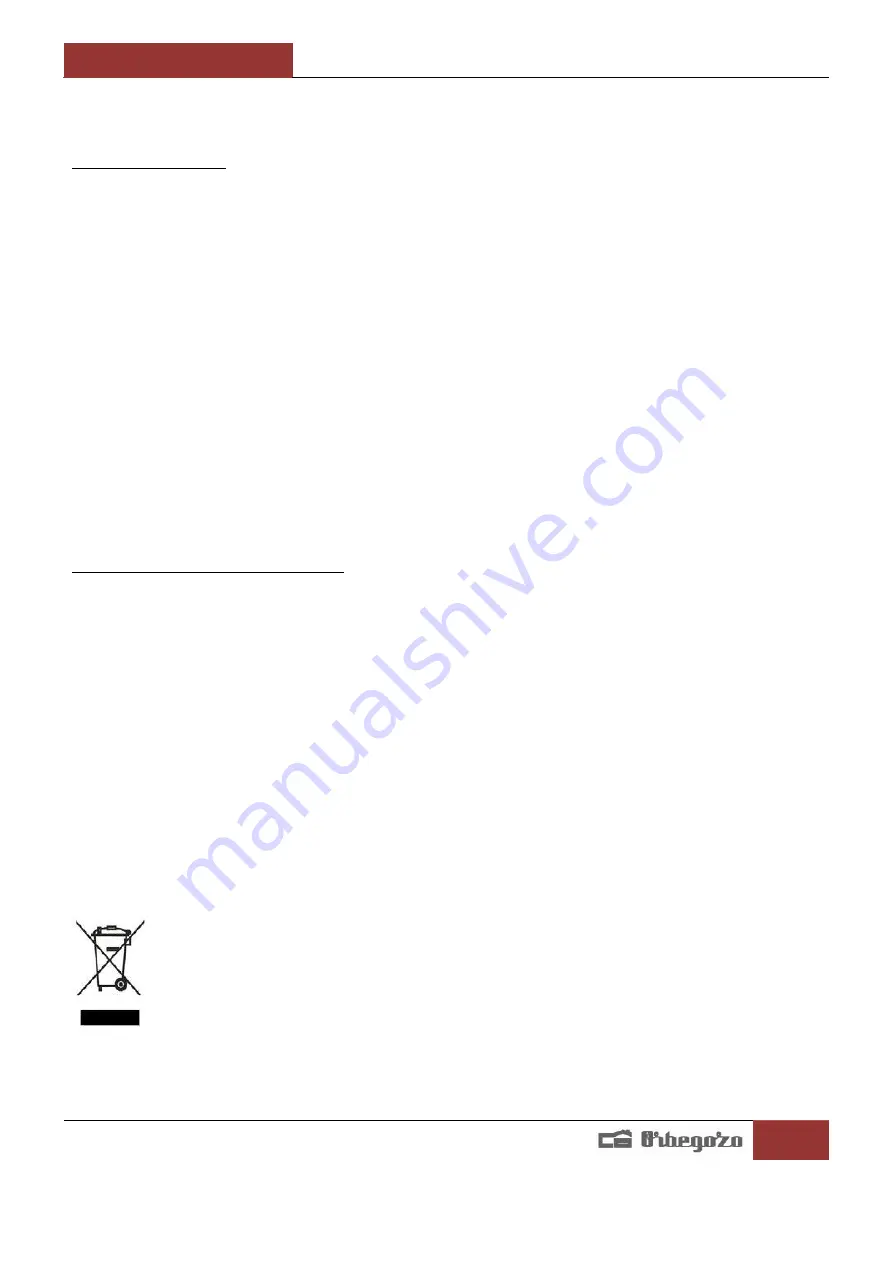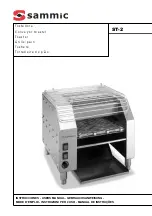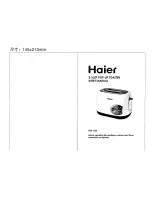
TO 8000
14
bread, you can not toast it in the Bread slot.
TOASTING NOTES
Toasting is a combination of cooking and drying the bread; moisture levels differ from one type of
bread to another, which can result in varying toasting times. Preheating is not necessary before using
toaster
•
For slightly dry bread, use a lower lighter setting than normal.
•
For fresh bread or whole wheat, use a higher setting than normal.
•
Breads with very uneven surfaces (such as English muffins) will require a higher setting.
•
Thickly cut pieces of bread (including bagels) will take longer to toast, sometimes significantly
longer, since more moisture must be evaporated from the bread before toasting can occur.
•
Very thick pieces may require two cycles.
•
When toasting raisin or other fruit breads, remove any loose raisins from the surface of the bread
before placing into the toaster. This will help prevent pieces from falling into the toaster or sticking on
the guard wire in the slot.
•
Before toasting bagels, slice each bagel into two equal halves.
•
Pastries: Be cautious when toasting pastries. The filling can become quite hot long before the
surface of the pastry becomes brown.
CLEANING AND MAINTENANCE
1.
Always unplug the toaster from electrical outlet and let it cool before cleaning.
2.
Do not use abrasive cleansers. Simply wipe the exterior with a clean damp cloth and dry thoroughly.
Apply any cleaning agent to cloth, not directly onto the toaster.
3.
To remove crumbs, slide out the crumb tray and discard crumbs. Never operate the toaster without
the crumb tray in its place.
4.
To remove any pieces of bread remaining in the toaster, turn the toaster upside down and shake
gently. Never inset any hard or sharp instrument into the slots as this could damage the toaster and
cause a safety hazard.
5.
Never wrap the cord around the outsides of the toaster, use the cord storage cleats on the
underside of the toaster.
Disposal of old electrical appliances.
The European directive 2002/96/EC on Waste Electrical and Electronic Equipment (WEEE), requires
that old household electrical appliances must not be disposed of in the normal unsorted municipal
waste stream. Old appliances must be collected separately in order to optimize the recovery and
recycling of the materials they contain, and reduce the impact on human health and the
environment. The crossed out “wheeled bin” symbol on the product reminds you of your
obligation, that when you dispose of the appliance, it must be separately collected.
Consumers should contact their local authority or retailer for information concerning the correct
disposal of their old appliance.
DECLARATION OF CONFORMITY: This device complies with the requirements of the Low
Voltage Directive 2006/95/EC and the requirements of the EMC directive 2004/108/EC.
Summary of Contents for TO 8000
Page 2: ...TO 8000 2 ...














































